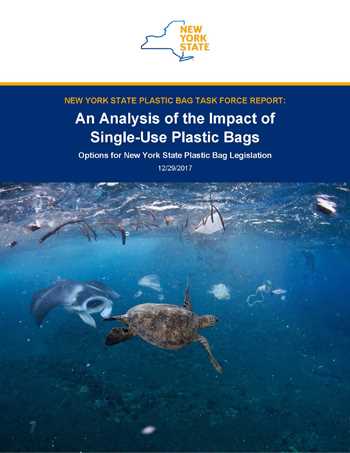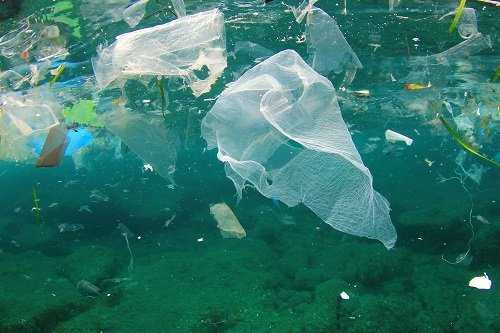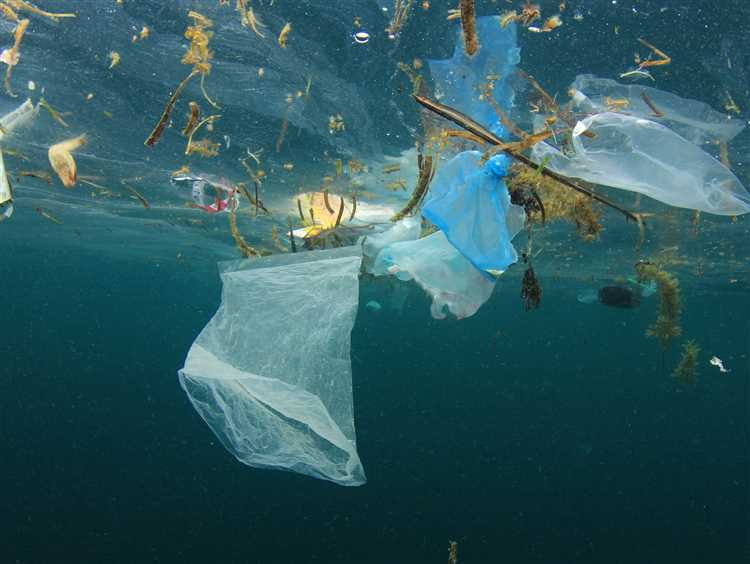In recent years, the devastating impact of plastic bags on our marine environment has become increasingly evident. From choking marine life to polluting our oceans, plastic bags have emerged as one of the biggest threats to our fragile ecosystems. In response to this alarming situation, many countries and cities around the world have implemented strict bans on plastic bags, taking a crucial step towards protecting our oceans and preserving the wellbeing of marine life.
Plastic bags, often referred to as the “silent killers”, pose a significant danger to marine life and habitats. Sea turtles, for example, mistake plastic bags for jellyfish and end up ingesting them, leading to serious injuries and sometimes even death. Additionally, the small size of microplastics from plastic bags makes them easily consumed by marine organisms, resulting in bioaccumulation and potential risks to the entire marine food chain.
By implementing a ban on plastic bags, governments and communities are taking a strong stance in defense of our marine environment. The ban not only helps to reduce the production and consumption of these harmful pollutants, but also promotes the use of more sustainable alternatives, such as reusable bags or paper bags. It encourages individuals to become more conscious of their impact on the environment and actively participate in the preservation of our oceans.
- Plastic Bag Ban: A Key Step Towards Ocean Conservation
- The Impact of Plastic Bag Bans
- The Role of Individuals and Businesses
- Understanding the Impact of Plastic Bags on Our Marine Environment
- 1. Plastic bags pollute our oceans
- 2. Plastic bags contribute to the plastic pollution crisis
- The Need for a Plastic Bag Ban: Addressing the Pollution Crisis
- The Benefits of Implementing a Plastic Bag Ban
- 1. Protecting Marine Life
- 3. Reducing Landfill Waste
- 4. Encouraging Sustainable Alternatives
- Question-answer:
- What is the plastic bag ban?
- Why is the plastic bag ban important for ocean conservation?
- What are the alternatives to plastic bags?
- What are the benefits of implementing a plastic bag ban?
- Are there any challenges associated with the plastic bag ban?
- Why are plastic bags harmful to the ocean?
Plastic Bag Ban: A Key Step Towards Ocean Conservation
Plastic pollution has become a major threat to our oceans, causing serious harm to marine life and ecosystems. One significant source of this pollution is single-use plastic bags. These bags are used for a few minutes, but can take hundreds of years to decompose. They often end up in our oceans, where they entangle marine animals, suffocate coral reefs, and break down into microplastics that can be ingested by marine organisms.
In response to this growing issue, many countries and cities around the world have implemented bans or restrictions on plastic bags. These bans aim to reduce the use of plastic bags and encourage the adoption of more sustainable alternatives, such as reusable bags. By reducing the demand for single-use plastic bags, we can significantly reduce the amount of plastic waste that ends up in our oceans.
The Impact of Plastic Bag Bans
Plastic bag bans have proven to be effective in reducing plastic waste and protecting our marine environment. In countries like Ireland, which introduced a plastic bag levy in 2002, there has been a remarkable decrease in plastic bag litter along their coasts. Similarly, cities like San Francisco, which implemented a ban on plastic bags in 2007, have seen a significant reduction in plastic bag consumption.
Aside from reducing plastic pollution, these bans also have positive economic and social impacts. By encouraging the use of reusable bags, communities can save on the costs associated with plastic bag production and waste management. Additionally, these bans promote awareness and encourage individuals to rethink their consumption habits, leading to a more sustainable and environmentally-conscious society.
The Role of Individuals and Businesses
While implementing plastic bag bans is a critical step towards ocean conservation, the success of these bans relies on the actions of individuals and businesses. As consumers, we can actively support these bans by adopting reusable bags and reducing our reliance on single-use plastics. By making small changes in our daily lives, such as bringing our own bags to the grocery store, we can collectively make a big difference in reducing plastic waste.
Businesses also play a crucial role in promoting ocean conservation. They can encourage customers to use reusable bags by offering incentives or discounts, and by providing alternative packaging options that are eco-friendly. Moreover, businesses can collaborate with local communities, environmental organizations, and government agencies to raise awareness about the importance of reducing plastic pollution.
In conclusion, plastic bag bans are an essential step towards ocean conservation. By reducing the use of single-use plastic bags, we can mitigate the harmful effects of plastic pollution on our marine environment. However, it is crucial that individuals and businesses take action and actively support these bans to ensure their success. Together, we can protect our oceans and create a sustainable future for generations to come.
Understanding the Impact of Plastic Bags on Our Marine Environment

Plastic bags have become a ubiquitous part of our daily lives, but their widespread use is having a devastating impact on our marine environment. The convenience and affordability of plastic bags have made them a popular choice for carrying groceries, packaging items, and transporting goods. However, these seemingly harmless bags are creating a major threat to our oceans and the marine life that calls them home.
1. Plastic bags pollute our oceans

Every year, millions of plastic bags end up in our oceans, where they can persist for hundreds of years. These floating bags pose a serious danger to marine life, as animals often mistake them for food. Sea turtles, for example, commonly mistake plastic bags for jellyfish and ingest them, leading to internal blockages and a slow and painful death. Birds, fish, and marine mammals are also affected by the presence of plastic bags in our oceans.
2. Plastic bags contribute to the plastic pollution crisis
Plastic bags are just one piece of the larger plastic pollution crisis that our oceans are facing. Plastic pollution is not only an eyesore on our beaches but also a threat to the health of our marine ecosystems. Plastic bags break down into tiny microplastics that can be ingested by microscopic organisms and work their way up the food chain, ultimately reaching humans who consume seafood. By reducing our use of plastic bags, we can help mitigate the overall plastic pollution problem in our oceans.
- Plastic bags are made from non-renewable fossil fuels, contributing to climate change
- Plastic bags can take hundreds of years to decompose, leaching harmful chemicals into the environment
- The production of plastic bags consumes significant amounts of energy and water resources
- Plastic bags can clog storm drains and contribute to flooding in coastal areas
It is clear that plastic bags have a negative impact on our marine environment and the overall health of our oceans. By understanding these impacts and taking steps to reduce our use of plastic bags, we can help protect our marine ecosystems and ensure a healthier future for our planet.
The Need for a Plastic Bag Ban: Addressing the Pollution Crisis

The pollution crisis caused by plastic bags is becoming an increasingly pressing issue for our marine environment. Plastic bags are a major source of pollution in oceans, rivers, and other water bodies, leading to devastating consequences for marine life and ecosystems.
Plastic bags are non-biodegradable and can take hundreds of years to break down. As a result, they have a long-lasting impact on the environment. When plastic bags end up in the ocean, they are often mistaken for food by marine animals, such as sea turtles, birds, and fish. These animals unknowingly consume the bags, leading to choking, intestinal blockages, and ultimately death.
Furthermore, plastic bags are also responsible for entangling marine animals, causing severe injuries or even death. Animals such as seals, dolphins, and whales may become trapped in the handles or other parts of the bags, making it difficult for them to swim, hunt, or breathe properly.
In addition to harming marine life, plastic bags also contribute to the overall pollution of the oceans. They break down into smaller pieces over time, creating microplastics that are nearly impossible to remove from the water. These microplastics can then be ingested by smaller marine organisms, entering the food chain and posing a threat to larger predators, including humans.
A plastic bag ban is crucial in addressing this pollution crisis. By implementing a ban, we can significantly reduce the number of plastic bags that end up in our oceans and waterways. This will help protect marine life, maintain the health of ecosystems, and preserve the beauty and biodiversity of our oceans for future generations.
Moreover, a plastic bag ban can also encourage the use of sustainable alternatives, such as reusable bags made from natural materials or biodegradable options. This shift towards more eco-friendly choices can promote a culture of conservation and responsible consumption, reducing our reliance on single-use plastics and minimizing our impact on the environment.
Ultimately, addressing the pollution crisis caused by plastic bags requires collective action. Governments, businesses, and individuals all have a role to play in promoting and implementing plastic bag bans. By working together, we can protect our marine environment and ensure a sustainable future for our planet.
The Benefits of Implementing a Plastic Bag Ban
Implementing a plastic bag ban can have numerous positive effects on our marine environment and the ecosystem as a whole. By reducing the usage of plastic bags, we can minimize the harmful impacts they have on marine life and promote a healthier and sustainable environment.
1. Protecting Marine Life
Plastic bags are one of the major contributors to marine pollution. They pose a significant threat to marine animals such as sea turtles, dolphins, and seabirds, who often mistake them for food. By implementing a plastic bag ban, we can reduce the number of plastic bags entering our oceans and prevent the tragic deaths of marine animals caused by ingestion or entanglement.
2. Preserving Ecosystem Balance
Marine ecosystems are delicate and interconnected. Plastic bags not only harm marine animals directly but also disrupt the balance of entire ecosystems. When plastic bags enter the ocean, they break down into microplastics, which can be consumed by small marine organisms. This can lead to bioaccumulation, where the toxins from these microplastics accumulate in the food chain, affecting larger marine animals and threatening the overall health and stability of the ecosystem. Implementing a plastic bag ban can help preserve the delicate balance of our marine ecosystems and protect the diverse species that rely on them.
3. Reducing Landfill Waste
Plastic bags are a significant contributor to landfill waste. They take hundreds of years to decompose, filling up landfills and contributing to greenhouse gas emissions. By implementing a plastic bag ban, we can significantly reduce the amount of plastic waste generated and alleviate the pressure on landfills. This can contribute to a more sustainable waste management system and a cleaner environment.
4. Encouraging Sustainable Alternatives
A plastic bag ban can also serve as an opportunity to promote the use of sustainable alternatives. This can include reusable bags made from biodegradable materials, such as cotton or hemp, or encouraging the use of paper bags. By shifting towards more environmentally-friendly options, we can reduce our reliance on plastic and promote a more sustainable lifestyle.
In conclusion, implementing a plastic bag ban has numerous benefits for our marine environment. It can protect marine life, preserve ecosystem balance, reduce landfill waste, and encourage the use of sustainable alternatives. By taking this step, we can play an active role in protecting our oceans and safeguarding the future of our marine ecosystems.+
Question-answer:
What is the plastic bag ban?
The plastic bag ban refers to the restrictions placed on the use of single-use plastic bags. Many countries and cities have implemented laws and regulations that prohibit or limit the distribution of plastic bags in order to reduce plastic pollution and protect the marine environment.
Why is the plastic bag ban important for ocean conservation?
The plastic bag ban is important for ocean conservation because plastic bags are one of the major sources of marine pollution. When not disposed of properly, they end up in the ocean and can harm marine animals and ecosystems. By banning plastic bags, we can reduce the amount of plastic waste that enters our oceans and protect marine life.
What are the alternatives to plastic bags?
There are several alternatives to plastic bags, including reusable bags made of fabric or canvas, paper bags, and biodegradable bags. These alternatives are more environmentally friendly because they can be reused, recycled, or easily broken down without causing harm to the marine environment.
What are the benefits of implementing a plastic bag ban?
Implementing a plastic bag ban has numerous benefits. It helps reduce plastic waste, minimize marine pollution, protect marine animals, and promote sustainable practices. Additionally, it encourages the use of reusable bags and fosters a more environmentally conscious society.
Are there any challenges associated with the plastic bag ban?
While the plastic bag ban is beneficial for the environment, there can be challenges in terms of enforcement and public acceptance. Some people may resist the change and find it inconvenient to switch to alternative options. It may also require educating the public about the need for the ban and encouraging behavior change.
Why are plastic bags harmful to the ocean?
Plastic bags are harmful to the ocean because they are not biodegradable and take hundreds of years to break down. When they end up in the ocean, they can be ingested by marine animals, causing harm or even death. Additionally, plastic bags can entangle marine animals, leading to injuries or suffocation. All of these factors contribute to the overall pollution and degradation of the marine environment.